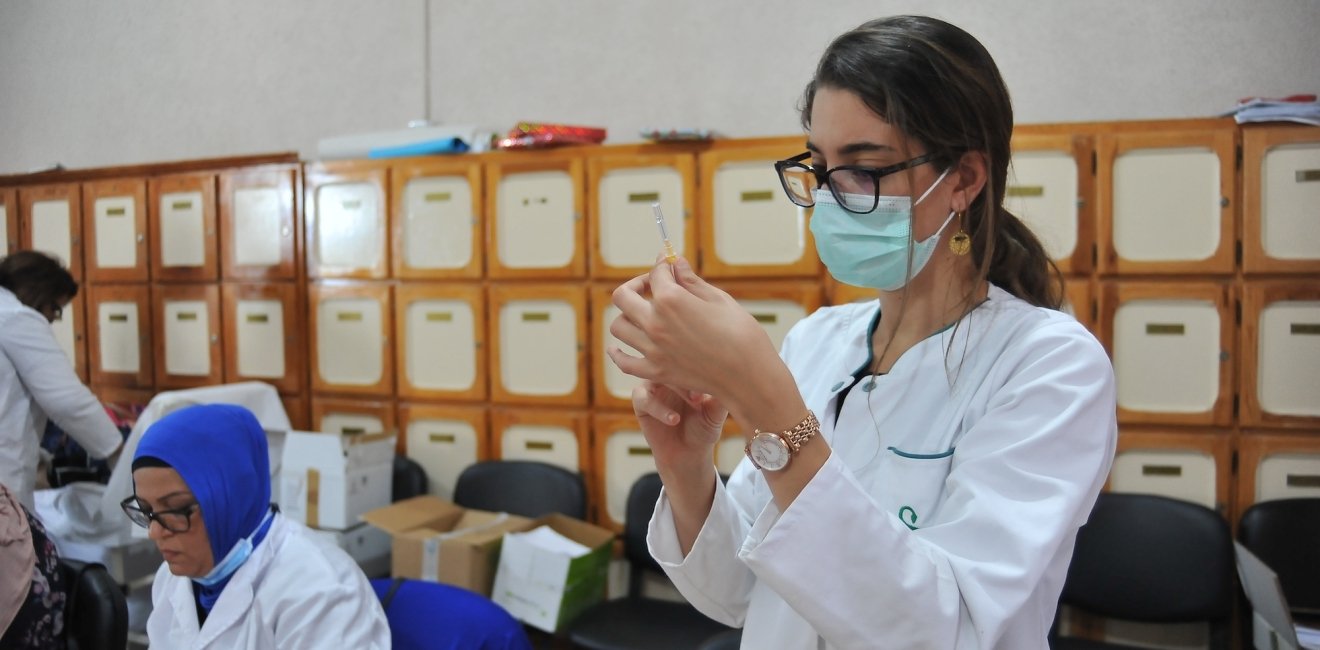
A blog of the Middle East Women's Initiative
Our greatest global challenges – climate change, poverty, and resource security – require that women leaders step up in all STEM fields to deliver innovative solutions.
Upon my return to Jordan with two degrees in environmental engineering almost 20 years ago, I was often asked, “How will you find opportunities in this field?”. As I reflect on a rewarding career in the environmental space, I can safely say that opportunities in this – and related fields – abound for women in the region. In my case, my STEM background has opened doors for exciting leadership roles in sustainability, climate, green economy, and clean technology across the Middle East and North Africa (MENA) region and beyond. However, efforts are still needed to raise awareness and tackle systemic challenges to foster further participation of women in STEM fields.
There are many ways to raise awareness and plant the seed of inspiration. I think what first drew me to the sciences was seeing my own mother pursue degrees in computer science and business, trailblazing as a woman entrepreneur in the 1990s. It was doubly encouraging to see the partnership she built with my late father, and the support we received from family and friends, which enabled them to raise me and my four siblings while advancing their own professional paths. This speaks to the importance of role models, mentors, and support systems in paving the way for the next generation of women in science.
I had the pleasure to serve as a mentor for a range of young men and women in the region, recognizing this as an essential way to ‘pay it forward’, and help our youth- particularly women - find their calling in the myriad opportunities available in the STEM field. Seven years ago, I was invited by colleagues at the USAID Energy Sector Capacity Building Program (ESCB) to join a mentorship program for women in the energy sector. Today, one of my mentees continues to add value to national clean energy projects and inspire other women. Such targeted mentorship programs, including those that are offered within organizations or at universities and schools, are an important tool to build confidence and enhance leadership potential for women in STEM. Professional exchange programs like the US’s “TechWomen” also offer the added benefit of knowledge transfer across borders and establishes an invaluable network of women leaders in STEM from the MENA region and US.
Support systems and policies continue to be a critical enabling factor for women in all sectors, but particularly in STEM. As a woman who began her career in the male-dominated engineering sector, and at the same time building a family, I quickly became aware of the significant impact that workplace policies can have on a woman’s ability to enter, and remain, in the workforce. Policies relating to maternity or paternity leave, daycare, remote work options, or part-time employment, can play an important role in women’s participation in the workforce. A paper by Harvard’s Growth Lab tries to unveil the factors behind Jordan’s particularly low female participation rate, and offers some insights to tackle them. It finds that despite the relatively high levels of educational attainment, unemployment – more so than participation – can be addressed by improving wage parity in the private sector, providing safe and reliable transportation, and fostering growth in “higher-paying, knowledge intensive business services” like ICT and “scientific and technical” services.
Fortunately, we find these policies being captured in Jordan’s recently released Economic Modernization Vision and its Women Empowerment Strategy , which aims to double the female labor participation rate to 28 percent and create 280,000 jobs for women by 2033 across all sectors.
Our greatest global challenges – climate change, poverty, and resource security – require that women leaders step up in all STEM fields to deliver innovative solutions. This is particularly the case in MENA, where water, energy and food security continue to present challenges, but also opportunities for a green, inclusive economic transition.
As my daughter carves her path in the world, I am hopeful she will find the knowledge, systems, and mentors she needs to succeed, knowing that I will always be at her back as the many amazing women who have supported me on my own wonderful journey in STEM so far.
Author


Middle East Program
The Wilson Center’s Middle East Program serves as a crucial resource for the policymaking community and beyond, providing analyses and research that helps inform US foreign policymaking, stimulates public debate, and expands knowledge about issues in the wider Middle East and North Africa (MENA) region. Read more


Middle East Women's Initiative
The Middle East Women's Initiative (MEWI) promotes the empowerment of women in the region through an open and inclusive dialogue with women leaders from the Middle East and continuous research. Read more

Explore More in Enheduanna
Browse Enheduanna
Women are the Catalysts for Change in Lebanon

How Education Can Empower Young Women in MENA


